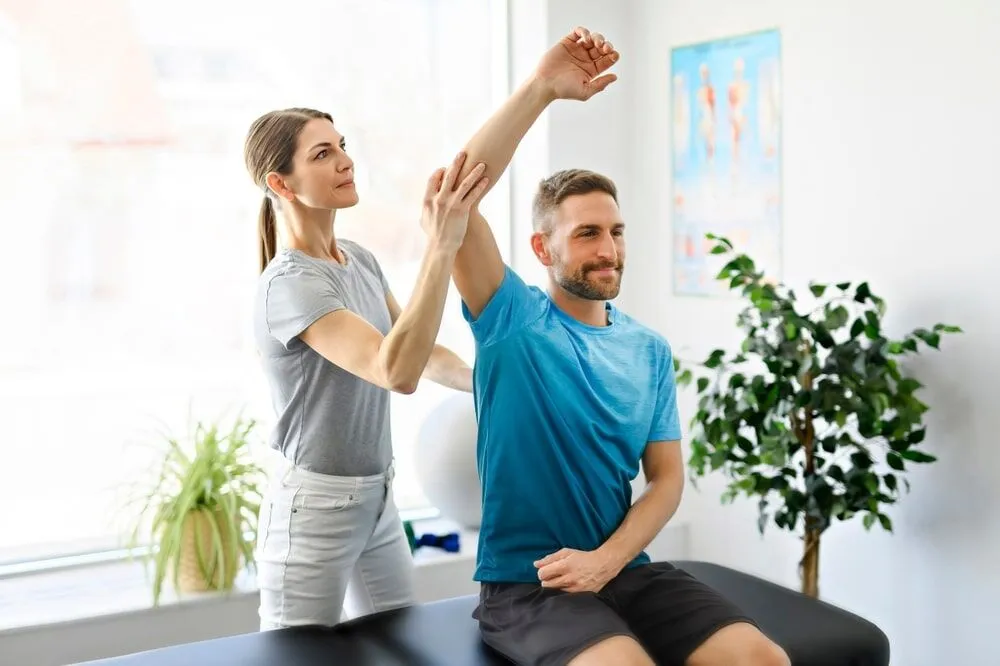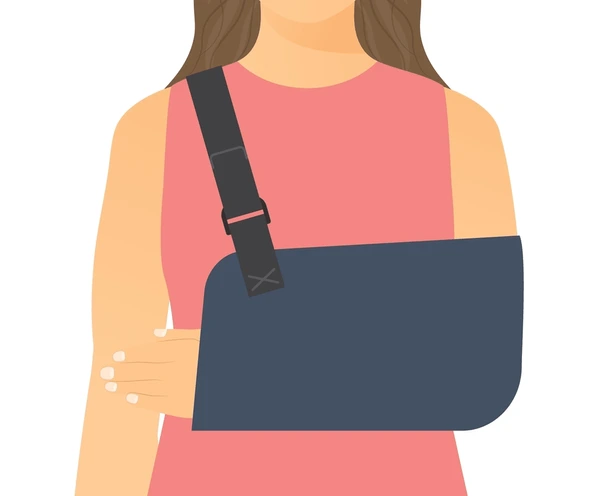Strategies for Coping with Chronic Joint Pain
Chronic joint pain is generally caused by osteoarthritis, a progressively worsening condition characterized by wear and tear of the cartilage that cushions joint surfaces. Shoulder osteoarthritis can result in problems like rotator cuff impingement and frozen shoulder. While osteoarthritis cannot be reversed, there are strategies for slowing down progress of the disease and coping with chronic joint pain.
- Stay active. Although it may seem counterintuitive, not moving a joint because it causes discomfort can worsen your symptoms. Exercises to strengthen the shoulder and simple stretches will help maintain range of motion and function, and better control pain. The key is moderation - don’t overexert the shoulder on days that you have less pain and don’t totally avoid activity when your pain is worse.
- Don’t lift heavy weights: Placing too much weight on the shoulder joint, high-impact activities or repetitive overhead activities can accelerate cartilage breakdown. Joint-friendly activities for the shoulder include resistance bands, swimming, and yoga.
- Medications: Over-the-counter nonsteroidal anti-inflammatory medication such as Aleve or Ibuprofen can be used to manage the occasional flare-ups of chronic joint pain. But they should only be taken as recommended by your doctor to avoid possible side effects.
- Hot and cold therapy: Application of ice helps reduce inflammation, swelling, and pain in the joint after strenuous activity or injury. Warm compresses reduces joint stiffness, helps sore muscles relax, and improves blood circulation to the joint.
- Don’t delay seeing your doctor: Living with chronic shoulder pain can have a negative impact on physical and mental health. Accurately identifying and treating a shoulder condition at an early stage greatly improves the likelihood of a positive outcome helping preserve your shoulder mobility and function.
Dr. Patrick Denard has been voted one of the top 20 Shoulder Surgeons in North America and is the most widely published shoulder specialist in Oregon. Dr. Denard is committed to providing the highest level of Orthopedic care to his patients. Dr. Denard has advanced arthroscopy training and is able to perform the vast majority of shoulder procedures in a minimally invasive fashion, including all types of rotator cuff repairs and in-stability repair. These techniques allow him to repair tears that some consider "irreparable." Providing every patient with advanced medicine and compassionate care each and every time.
Similar posts



